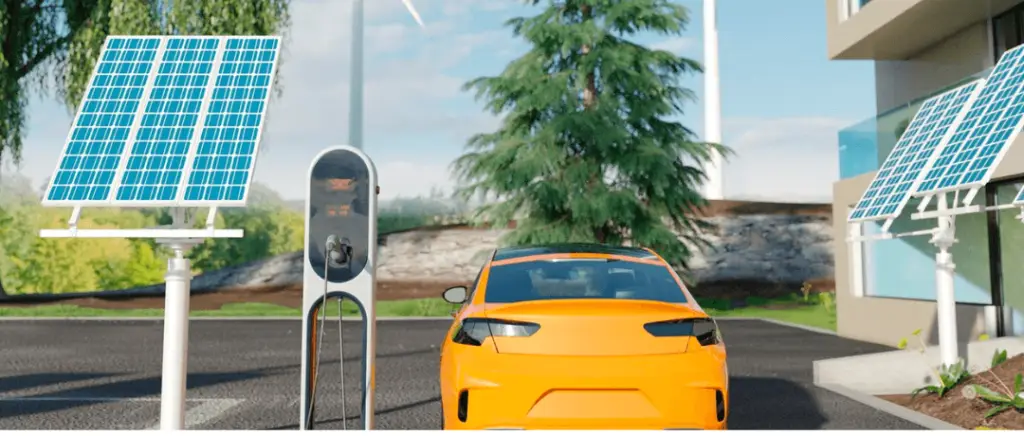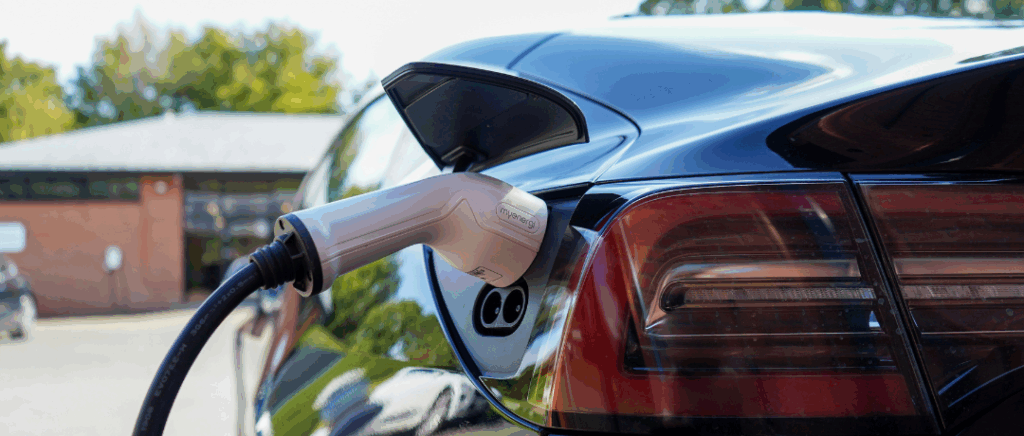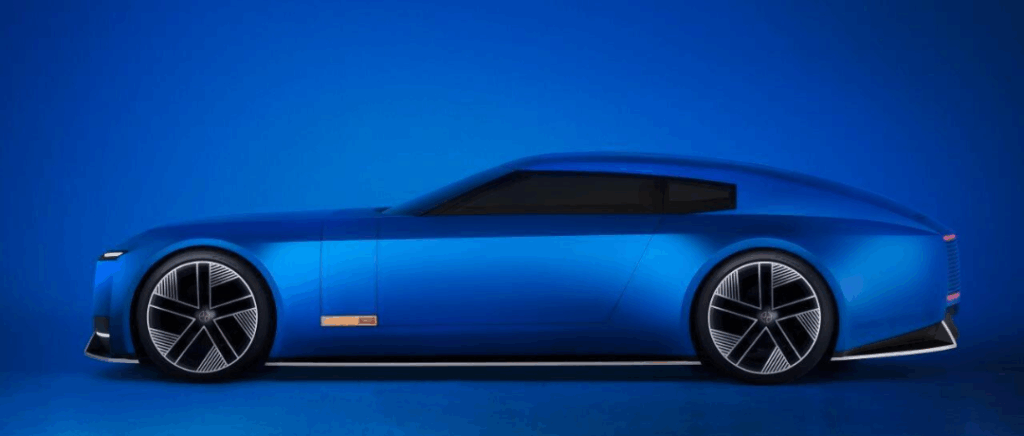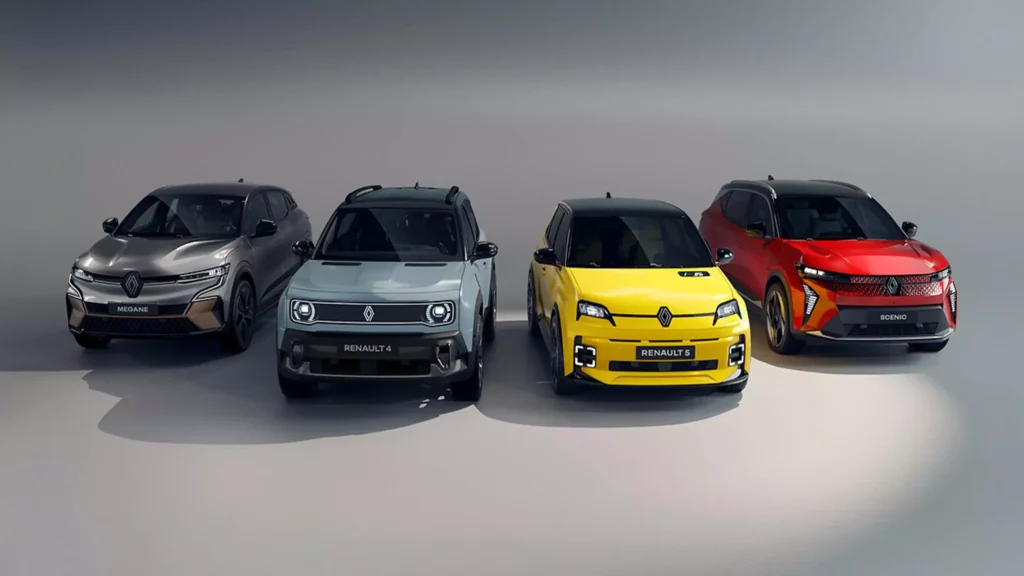Why not install photovoltaic solar panels?
With Beev, get a turnkey solar panel solution to reduce your electricity consumption.
Why choose a solar kit to recharge your electric car?
Reduce your energy costs through self-consumption
Solar self-consumption is an efficient and cost-effective way of reducing your energy costs while maximising the use of renewable energy. By installing solar panels to charge your electric car, you can generate your own electricity and use it directly to power your vehicle. This approach allows you to significantly reduce, or even eliminate, your recharging costs!
For example, according to a study carried out by EDF ENR, a well-sized solar installation can cover up to 50% of a household's energy needsA large proportion of this energy can be used to recharge an electric vehicle. This means that, over the long term, the savings from self-consumption can amount to hundreds of euros a year.
By integrating a solar kit into your home or business, you can maximise your energy independence, in particular by combining solar energy with intelligent charging stations. These charging points adapt charging to the output of the solar panels and to your specific needs. Not only are you saving money on your electricity bills, but you're also playing an active part in the transition to greener energy.
Adopting a solar recharging kit for electric cars is therefore a winning solution. You reduce your energy costs while enjoying the satisfaction of recharging your vehicle with 100% renewable energy. To take full advantage of these benefits, it's essential to size your solar system correctly, depending on your energy requirements and the type of electric vehicle you have.
An ecological and sustainable solution
Opting for a solar kit to recharge your electric car is a solution that combines ecology and performance, while meeting the challenges of the energy transition. Solar panels convert the sun's energy into clean electricity, reducing your dependence on fossil fuels and cutting your energy bills. carbon footprint. Recharging your electric car using solar energy means you can make an active contribution to protecting the environment.
There are a number of ecological advantages to a solar kit for an electric car:
- zero direct CO2 emissions,
- reducing the carbon footprint,
- renewable and inexhaustible energy,
- improvement ofautonomy energy,
- and real-time optimisation with intelligent energy management.
By combining the use of a solar charging point and an electric car, you maximise the positive impact on the environment, while benefiting from a sustainable and cost-effective solution. What's more, by installing solar kits for electric cars, you can improve your energy independence by reducing your dependence on conventional electricity grids.
Also read → Should you install photovoltaic panels for your charging points?
How does a solar recharging kit for electric cars work?
The essential components of a solar kit
A solar kit for recharging your electric car is made up of several key components that work together to transform solar energy into usable electricity. The essential components of a solar kit play a specific role in ensuring efficient, long-lasting charging of your vehicle.
Solar panels
Solar panels are the heart of any solar charging kit. They capture sunlight and convert it into electricity using photovoltaic cells. Generally installed on a roof or on the ground, the panels can provide enough energy to cover the needs of a house as well as recharging an electric vehicle. The size and power of the panels depend on your vehicle's energy needs, and it is essential to size your installation correctly.
The inverter
L'inverter transforms the electricity produced by the solar panels (direct current or DC) into alternating current (AC), the type of electricity used by most household appliances and charging points. There are micro-inverters for each panel or centralised inverters, depending on the configuration of your installation. This component is essential to ensure that the energy generated is compatible with your home network and your vehicle.
Solar charging point
The charging point is the element that connects your electric car directly to the electricity grid powered by solar panels. Some charging points are equipped with intelligent energy managers, which optimise the use of solar energy by adjusting the power according to solar production and the needs of the vehicle. Modern solar charging stations also allow you to monitor consumption via a mobile application.
La battery storage (optional)
The storage batteries allow the excess energy produced by the solar panels to be conserved during the day. This energy can then be used to recharge your vehicle at night or on cloudy days, guaranteeing complete energy autonomy. Although batteries represent an additional cost, they maximise the efficiency of your solar kit and further reduce dependence on the grid.
The energy management system
An Energy Management System (EMS) monitors, controls and optimises the production and consumption of solar energy. This intelligent system ensures that your car is recharged as a priority when solar production is at its peak. Some EMSs can also manage the distribution of energy between the house and the car, ensuring optimum use of every kilowatt produced.
These components form an ecosystem that ensures environmentally-friendly, economical and efficient recharging of your electric car, while reducing your carbon footprint.
Installation and configuration: everything you need to know
Installing a solar kit to charge your electric car may seem complex at first, but by following the right steps, you can benefit from an optimised and efficient installation. Here are the five recommended steps for installing and configuring your solar charging system.
1. Assess the feasibility of the installation
The first step is to assess the feasibility of your solar project. This involves determining whether you have enough space to install the solar panels. It is essential to take into account the orientation and inclination of the space available to maximise exposure to the sun. In general, a south-facing orientation is ideal for optimum production. It is also advisable to check whether your region offers enough annual sunshine to make the installation profitable.
2. Choosing the right equipment
The choice of components is crucial to ensuring the efficiency of your solar kit. You'll need to select solar panels that are suited to the size of your installation and your energy needs. In general, it's advisable to seek professional advice to calculate the kilowatt-peak (kWp) capacity required, which is the maximum power your panels will be able to produce.
The installation should also include an inverter, a solar charging point and, if necessary, storage batteries to maximise self-consumption.
3. Use certified professionals
Installing a solar kit requires the services of qualified professionals. In France, it's advisable to choose an installer with RGE (Reconnu Garant de l'Environnement) certification. This certification enables you to benefit from certain forms of financial aid, such as tax credits and subsidies. Professionals can also help you configure the system to maximise efficiency and ensure that it complies with safety standards.
4. Connect to the network and commission
Once the solar panels and components have been installed, the system needs to be connected to the electricity grid. This allows solar energy to be used alongside the electricity supplied by your energy supplier. In some cases, you can opt to resell the surplus electricity produced at a regulated tariff, which can generate additional income.
Commissioning also includes configuring the intelligent elements, such as the Energy Management System (EMS). This automatically adjusts your vehicle's charging according to solar production and other energy needs in your home.
5. Maintenance and follow-up
Although solar panels require little maintenance, regular cleaning is recommended to ensure optimum production, especially if the panels are installed in an area exposed to dust or debris. In addition, most modern systems allow real-time monitoring of energy production and consumption via mobile applications. This allows you to adjust your consumption patterns to optimise your use of solar energy.
Also read → Charging your electric vehicle: everything you need to know
Maximise the efficiency of your solar charging point
Intelligent energy management technologies
Intelligent energy management technologies play a key role in optimising the efficiency of solar charging points. They enable you to adjust and maximise the use of the energy produced by the solar panels, while ensuring optimum management of your electric vehicle's charging.
| Technologie | Fonctionnalité | Avantages |
|---|---|---|
|
Optimising self-consumption
|
Redirecting excess solar energy to recharge the vehicle
|
Reduce electricity costs, maximise solar energy use
|
|
Monitoring via mobile application
|
Real-time monitoring, planning and analysis of energy consumption data
|
Flexible, optimised management of consumption, alerts in the event of overloading
|
|
Programmed recharging
|
Charging during periods of high solar production or low electricity tariffs
|
Maximising the use of solar energy and reducing dependence on the grid
|
|
Integration with storage batteries
|
Adjusting recharging according to the level of energy stored in domestic batteries
|
Guaranteed continuous recharging, greater energy independence
|
Intelligent energy management technologies make it possible not only to maximise the efficiency of solar charging stations, but also to optimise the use of the energy produced according to the specific needs of each user. By combining real-time monitoring, automatic energy management and integration with storage solutions, these innovations make it easier for electric vehicles to recharge more economically, ecologically and autonomously. Thanks to these systems, you can not only optimise your self-consumption, but also significantly reduce your energy costs while improving your independence from the electricity grid.
Combine storage and solar charging for complete autonomy
Combining storage batteries with your solar charging point is an ideal solution for achieving almost complete energy autonomy. This combination not only maximises the use of the solar energy produced during the day, but also allows it to be stored for recharging during times when the sun is not available, such as at night or on cloudy days.
Storage batteries capture excess solar energy produced during the day that is not immediately used by your home or electric vehicle. Instead of sending this excess energy back to the grid, it is stored for future use. This allows your electric car to be recharged even outside the hours of solar production, offering greater flexibility and independence.
By using both solar panels and a storage system, you can drastically reduce your need to tap into the electricity grid. This system ensures that even during periods of low sunlight, your installation continues to supply electricity. What's more, if you have a large-capacity battery, you can hope to cover almost all your energy needs, both for the house and for recharging your car.
Also read → Optimising electric car charging at home
Conclusion
Optimising the charging of your electric car with a solar kit is much more than a simple economic solution. It's an ecological, sustainable and forward-thinking choice that's part of the energy transition. By adopting a solar installation coupled with intelligent management technologies and storage systems, you're not only maximising your energy independence, you're also significantly reducing your electricity costs and your carbon footprint.
































